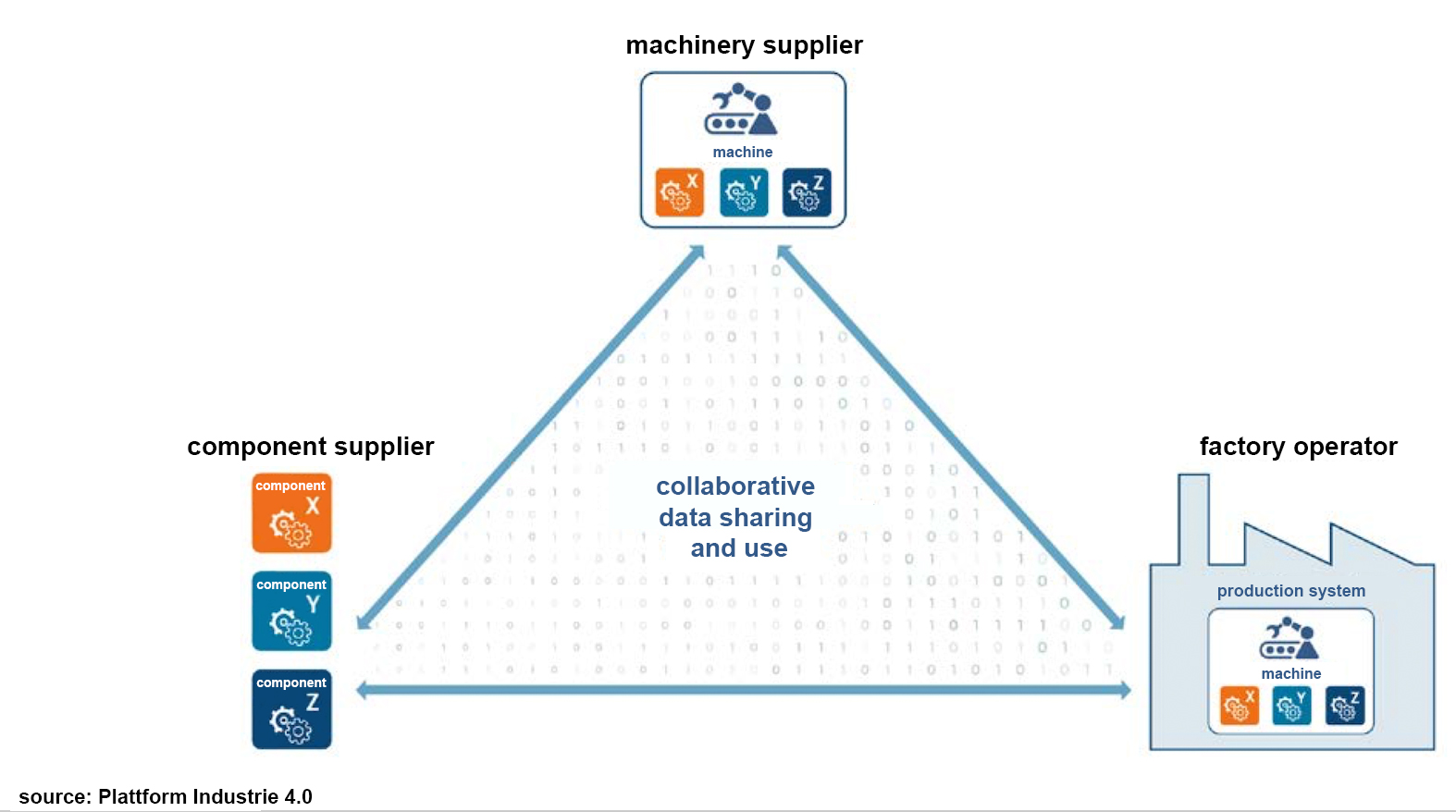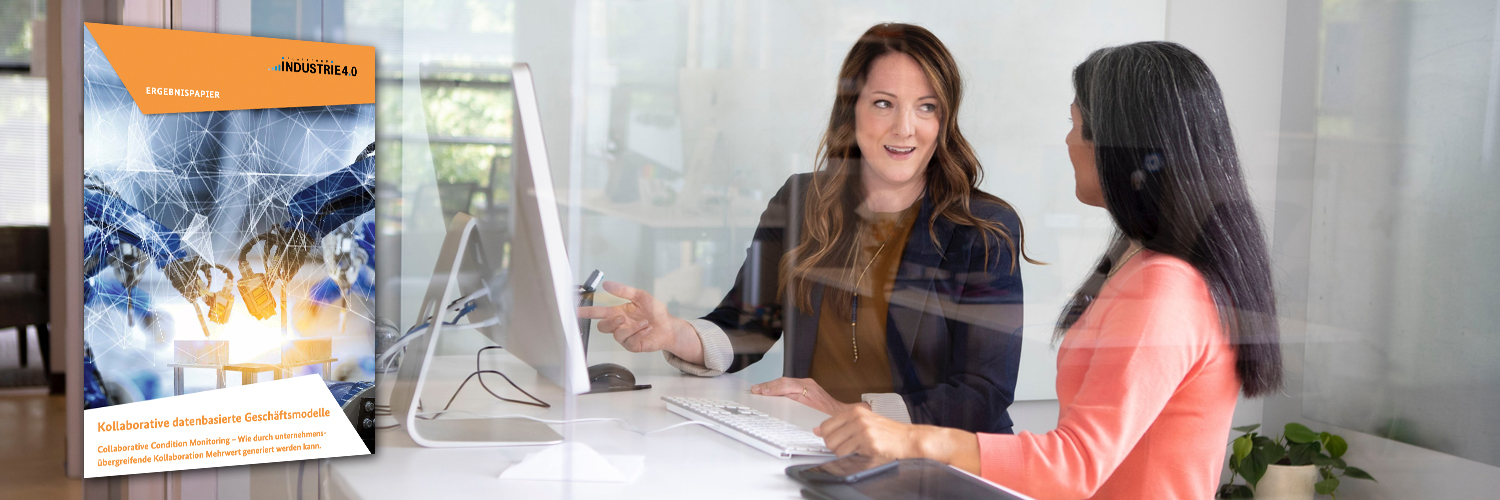The Future of Industry 4.0: Jointly Tapping the Potential of Artificial Intelligence
The Industry 4.0 Platform is a joint initiative of the Federal Ministry for Economic Affairs and Energy and the Federal Ministry of Education and Research. Federal Minister of Economics and Technology Peter Altmaier and Federal Minister of Research Anja Karliczek are heading the platform together with high-ranking representatives from companies, science, associations and trade unions. Experts work in working groups to develop strategies, technical approaches and recommendations on the most important topics of Industry 4.0.
The Plattform Industrie 4.0, an initiative for the expansion of competence and standardisation of digital technologies in the production environment, has advocated cross-company and cross-institutional cooperation in its latest results paper "Collaborative data-based business models"
This refers in particular to the economic potential of data-driven value networks and the development of new business models. In contrast to classic market mechanisms such as the isolated use of competitive advantages and unique selling points through individual, non-interoperable, technological solutions, there is a paradigm shift, especially in the environment of start-up and network formation area of product development, which points to the future of Industry 4.0. New models of collaboration, especially in the cooperative use of data, promise added value for all network actors. Flexibility and resilience are just two characteristics attributed to these new cooperation models. In mechanical engineering, for example, data from upstream or downstream actors in the value chain can be integrated into one's own company. Information about the products of suppliers or the use of one's own offer by customers can thus flow into one's own value creation and optimise it. Against the backdrop of ever faster changing market conditions and requirements, the increasing importance of global competition and with a view to economic or corporate crisis management, such as in times of a pandemic, these added values of value creation networks seem essential. "An open exchange of data based on common rules in a multilateral cooperation that extends across companies and competition can significantly increase this potential," the authors say.

The model of "Collaborative Condition Monitoring" is presented as an example - an industry-hybrid approach to data-driven condition monitoring in production that creates an ecosystem with benefits for all players. The open exchange within a three-tier network is a central element of this form of cooperation, which thus clearly differs from classical bilateral partnerships.
KI on the way to reality: contribution from Lemgo
Data-driven production and new forms of collaboration to drive it forward can form a large intersection with be supported by new artificial intelligence (AI) technologies. Fraunhofer IOSB-INA in Lemgo has been researching successfully in this field for more than ten years, in cooperation with colleges and universities as well as with business partners from the Ostwestfalen-Lippe region and beyond. Within this framework, the Fraunhofer researchers have made a noteworthy contribution to testing and improving the cooperation models named in the paper, among others, by setting up a living lab for artificial intelligence in production.
The AI living lab in Lemgo has been a place ecosystem for the joint collection and open and sovereign processing of production data for machine learning or deep learning methods since 202019. This high-quality data from the industrial environment of the SmartFactoryOWL or regional companies is made available to an AI community in order to tackle use cases and problems. This solution development takes place, among other things, in hackathons by AI experts. The results paper of the Platform Industry 4.0 states: "Under the leadership of Fraunhofer IOSB-INA, innovative AI technologies are being researched together with regional companies and network partners under different framework conditions of Industry 4.0. For this AI living lab, real data from a complex process chain will be used to scientifically investigate the technical aspects of CCM. The aim is to evaluate and further develop AI methods in a realistic industrial environment. In the process, data from different sources is brought together in a semantically interoperable way. The knowledge thus gained under laboratory conditions is an important prerequisite for the reliable application of AI in real production plants."
The "AI Community OWL", an initiative of companies, institutes and private individuals that also came into being in Lemgo in this context, is also driving developments in the AI sector beyond the daily business - this is where technology enthusiasts and experts in the field meet around the topic of artificial intelligence, forums and different event formats are created, hackathons are held and much more. The AI Challenge Days, which took place for the first time in June 2020, are a good example of how AI- or data-focused collaborations work across company and industry boundaries. Following the first successful event, the next AI Challenge Days will be held in the fourth quarter of 2020. New business partners have already signalled their interest in participating.
 Industrial Automation branch INA
Industrial Automation branch INA 